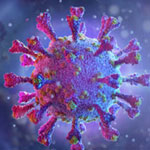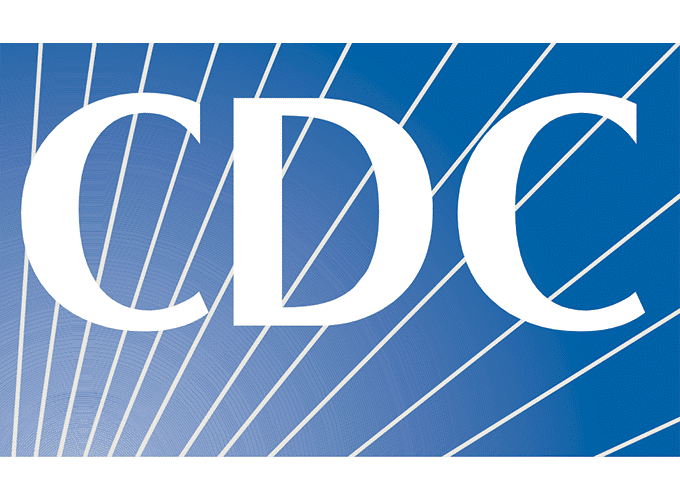
Share Your Expertise at the NCCHC Spring Conference on Correctional Health Care
Help shape the future of correctional health care.
Home Monoclonal Antibody Therapeutics: Improving COVID-19 Patient Outcomes in Correctional Health Care
 Mar 19, 2021
Mar 19, 2021I wanted to pass on some new and highly relevant information on exciting medical innovations highlighted by our colleagues at the HHS/Assistant Secretary for Preparedness and Response (ASPR). While many of us are following the vaccine roll-out and have a good sense for how COVID19 vaccines work, there are other important preventive and therapeutic options available which use neither a vaccination approach nor are traditional medical therapies. Nonetheless, these can help save lives. I am writing here about monoclonal antibodies (mAb), a lesser known treatment option.
These treatments are not new and have been used in cancer treatment for many years. However, what is new is that mAb have recently approved approaches can help reduce the risk of disease progression or hospitalization in high-risk patients with COVID-19.
Please read on to explore the world of monoclonal antibodies and how these may have place in a correctional setting.
Introduction by Brent Gibson, MD, MPH, CCHP-P
Monoclonal Antibody Therapeutics: Improving COVID-19 Patient Outcomes in Correctional Health Care
Authors: CDR Angela Hutson, MHA, BSN, RN, USPHS/ASPR; LT Adesola F. Adejuwon, PharmD, MBA, USPHS/FDA; LCDR Tiffany Pfundt, PharmD, PMP, USPHS/HHS
Many correctional facilities are looking for ways to reduce the need for hospitalization of COVID-19 patients and improve health outcomes. In the last four months, the U.S. Food and Drug Administration has approved three new monoclonal antibody therapeutic treatments under an Emergency Use Authorization. If given within 10 days of the onset of symptoms, monoclonal antibody treatments can help reduce the risk of disease progression or hospitalization in high-risk patients with COVID-19.
Monoclonal antibodies (mAbs) are laboratory-made proteins that mimic the immune system’s ability to fight off harmful antigens such as viruses. Monoclonal antibodies to treat COVID-19 are directed against the spike protein of SARS-COV2 (the virus that causes COVID-19), and they are designed to block the virus’ attachment and entry into human cells.
Identifying Eligible COVID-19 Patients
COVID-19 mAbs are available for the treatment of non-hospitalized adult and pediatric patients with mild to moderate cases of COVID-19 and who are at high risk of progression to severe disease and/or hospitalization. Monoclonal antibody therapeutics must be administered within 10 days of the onset of symptoms, and earlier administration of the drug helps improve patient outcomes.
However, mAb treatments are not for patients who have been hospitalized due to COVID-19, require oxygen due to COVID-19, require an increase in baseline oxygen due to COVID-19, or for those on chronic oxygen therapy. For detailed information on patient eligibility, see Information for Providers: Treatment Options for Patients with Mild to Moderate Symptoms.
Supplementing COVID-19 Vaccine Strategies
For high-risk patients with mild to moderate COVID-19, mAb treatments have been shown to reduce hospitalization and symptom days. mAb treatments are widely available and treatment sites can order the products directly from the distributor. Strategies for both prevention of COVID-19 with vaccination and treatment with mAbs have important roles to play in your facility’s overall COVID-19 response strategy.
Your eligible patients who have had mild to moderate symptoms for 10 days or less may benefit from treatment with certain monoclonal antibody drugs.
Planning for Administration and Ordering Product
All sites that meet class of trade requirements are able to administer the products according to the EUAs. It should be noted that administration of monoclonal antibody therapeutics takes careful consideration and planning, and there are multiple administration model examples for correctional facilities. To learn more about planning considerations, requirements for tracking utilization, and more, see Correctional Facilities Distribution of COVID-19 Monoclonal Antibody Therapeutics.
Once you have decided to administer monoclonal antibody therapeutics at your facility, you can place orders with the drugs’ sole distributor, AmerisourceBergen (or ABC), through a direct order process. Both new and existing sites can utilize the Direct Order portal. New sites undergo validation prior to receiving their first shipment.
Finding Alternative Infusion Sites
Using the infusion site locator, COVID-19 positive patients can be transported to an off-site infusion center. The treatment takes from 16 minutes to one hour and is followed by a one hour observation period.
Getting Started
The bottom line is that monoclonal antibody therapeutics have the potential to help improve patient outcomes and reduce hospitalizations, but they need to be administered quickly to help patients recover. To start planning for monoclonal antibody therapeutics infusions at your facility and to learn about other options for getting these treatments for inmates/detainees, please visit Correctional Facilities Distribution of COVID-19 Monoclonal Antibody Therapeutics.
For additional information:


